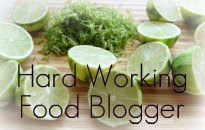What is celiac disease?
Celiac disease is a digestive disease that damages the small intestine and interferes with absorption of nutrients from food. People who have celiac disease cannot tolerate a protein called gluten, found in wheat, rye, and barley. Gluten is found mainly in foods but may also be found in products we use every day, such as stamp and envelope adhesive, medicines, and vitamins.
When people with celiac disease eat foods or use products containing gluten, their immune system responds by damaging the small intestine. The tiny, fingerlike protrusions lining the small intestine are damaged or destroyed. Called villi, they normally allow nutrients from food to be absorbed into the bloodstream. Without healthy villi, a person becomes malnourished, regardless of the quantity of food eaten.
Because the body’s own immune system causes the damage, celiac disease is considered an autoimmune disorder. However, it is also classified as a disease of malabsorption because nutrients are not absorbed. Celiac disease is also known as celiac sprue, nontropical sprue, and gluten-sensitive enteropathy.
Celiac disease is a genetic disease, meaning it runs in families. Sometimes the disease is triggered—or becomes active for the first time—after surgery, pregnancy, childbirth, viral infection, or severe emotional stress.
What are the symptoms of celiac disease?
Celiac disease affects people differently. Symptoms may occur in the digestive system, or in other parts of the body. For example, one person might have diarrhea and abdominal pain, while another person may be irritable or depressed. In fact, irritability is one of the most common symptoms in children.
Symptoms of celiac disease may include one or more of the following:
gas
recurring abdominal bloating and pain
chronic diarrhea
constipation
pale, foul-smelling, or fatty stool
weight loss/weight gain
fatigue
unexplained anemia (a low count of red blood cells causing fatigue)
bone or joint pain
osteoporosis, osteopenia
behavioral changes
tingling numbness in the legs (from nerve damage)
muscle cramps
seizures
missed menstrual periods (often because of excessive weight loss)
infertility, recurrent miscarriage
delayed growth
failure to thrive in infants
pale sores inside the mouth, called aphthous ulcers
tooth discoloration or loss of enamel
itchy skin rash called dermatitis herpetiformis
A person with celiac disease may have no symptoms. People without symptoms are still at risk for the complications of celiac disease, including malnutrition. The longer a person goes undiagnosed and untreated, the greater the chance of developing malnutrition and other complications. Anemia, delayed growth, and weight loss are signs of malnutrition: The body is just not getting enough nutrients. Malnutrition is a serious problem for children because they need adequate nutrition to develop properly.
What is the treatment?
The only treatment for celiac disease is to follow a gluten-free diet. When a person is first diagnosed with celiac disease, the doctor usually will ask the person to work with a dietitian on a gluten-free diet plan. Someone with celiac disease can learn from a dietitian how to read ingredient lists and identify foods that contain gluten in order to make informed decisions at the grocery store and when eating out.
For most people, following this diet will stop symptoms, heal existing intestinal damage, and prevent further damage. Improvements begin within days of starting the diet. The small intestine is usually completely healed in 3 to 6 months in children and younger adults and within 2 years for older adults. Healed means a person now has villi that can absorb nutrients from food into the bloodstream.
In order to stay well, people with celiac disease must avoid gluten for the rest of their lives. Eating any gluten, no matter how small an amount, can damage the small intestine. The damage will occur in anyone with the disease, including people without noticeable symptoms.
Allowed Foods:
Amaranth, Arrowroot, Buckwheat, Cassava, Corn, Flax, Indian rice grass, Legumes, Millet, Nuts, Potatoes, Quinoa, Rice, Sago Seeds, Soy, Sorghum, Tapioca, Wild Rice and Yucca, Fresh Meat and Fish-frozen can have a glutenous coating to prevent sticking
Foods To Avoid:
Wheat-- Including einkorn, emmer, spelt, kamut
Wheat starch, wheat bran, wheat germ, cracked wheat, hydrolyzed wheat protein
Barley, Rye, Triticale (a cross between wheat and rye), Bromated flour, Durum flour, Enriched flour, Farina, Graham flour, Phosphated flour, Plain flour, Self-rising flour, Semolina, White flour, MSG, Modified Food Starch, Natural or Artificial Flavorings








6 comments:
Hey Tiffany -- thanks for changing your comment choices. Yeah! Now I can blah, blah, blah on your blog!
Nice post with lots of good information for people! Good job. Have you ever used sago seeds? I wonder what they're like and how you use them.
Melissa-GLUTEN FREE FOR GOOD
Melissa, I have not used Sago Seeds before...but stay tuned, because now my interest has been sparked!
Hi Twin Tiffany! Nice to "meet" you! I see from your blog that you are quite the cook...I am not :) That's why my blog is all about eating out and products. I am working on it though! Hope to "see" you around!
I just think this is so hilariious! It's crazy that there are 2 "gluten free Tiffany's" in Colorado! I love it!
By the way...Tiffany is from makemineglutenfree.wordpress.com for anyone who wants to check her out :)
Hi Tiffany!
It's exciting to know you're in Colorado. I recently found out I'm gluten intolerant and am just starting to get things going on my own blog with a few friends. Like your mom, I have all the symptoms, but I'm IgA deficient so blood will be negative. However, my endoscopy/biopsy results were also negative. Don't fall for it. If the GF diet works, it works, and frankly that's all I need to know. Like you, I have lots of family that might have had this and I'm the first to try to convince them to change their diets. It's agonizingly slow going. I'm also a lawyer, though, so if you have any legal questions (fair advertising, personal injury, food labeling, that kind of thing), let me know. I might be able to help! Keep up the good work!
Thanks for the info Justin! Hopefully we can both convince our families to try out a new GF diet :) It really makes a world of difference. Good to know that I have lawyer around if I need one :) hehe
Post a Comment